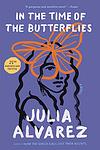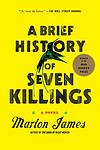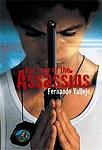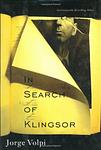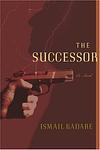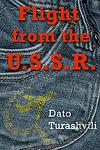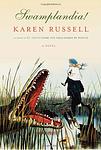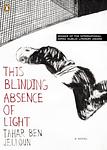The Greatest "Historical fiction, Political, Fiction" Books Since 1990
Click to learn how this list is calculated.
This list represents a comprehensive and trusted collection of the greatest books. Developed through a specialized algorithm, it brings together 300 'best of' book lists to form a definitive guide to the world's most acclaimed books. For those interested in how these books are chosen, additional details can be found on the rankings page.
Genres
Historical fiction is a genre of literature that combines fictional stories with real historical events, settings, and characters. These books often take place in a specific time period and are based on research and factual information, but also include imaginative elements to create a compelling narrative. Historical fiction allows readers to experience the past in a unique and engaging way, while also providing insight into the social, cultural, and political issues of the time.
The "Political" category of books encompasses works that explore the theory, practice, and history of government and politics. These books may cover topics such as political ideologies, political systems, political institutions, political movements, and political leaders. They may also examine the relationship between politics and other areas of society, such as economics, culture, and international relations. Political books can be both informative and thought-provoking, offering readers insights into the complexities of the political world and the challenges of governing in a democratic society.
Countries
Date Range
Reading Statistics
Click the button below to see how many of these books you've read!
Download
If you're interested in downloading this list as a CSV file for use in a spreadsheet application, you can easily do so by clicking the button below. Please note that to ensure a manageable file size and faster download, the CSV will include details for only the first 500 books.
Download-
1. The Plot Against America by Philip Roth
This novel presents an alternate history where aviator-hero and rabid isolationist Charles Lindbergh is elected President in 1940, leading the United States towards fascism and anti-Semitism. The story is narrated through the perspective of a working-class Jewish family in Newark, New Jersey, experiencing the political shift and its terrifying consequences. The narrative explores themes of prejudice, fear, patriotism, and family bonds under the shadow of a fascist regime.
-
2. The Sympathizer by Viet Thanh Nguyen
"The Sympathizer" is a gripping spy novel set during the Vietnam War. The protagonist is a half-French, half-Vietnamese army captain who is a communist double agent. After the Fall of Saigon, he moves to America with other South Vietnamese refugees and struggles to reconcile his dual loyalties as he continues to spy on his fellow countrymen in exile. The novel explores themes of identity, war, and politics, while providing a unique perspective on the Vietnam War and its aftermath.
-
3. In the Time of the Butterflies by Julia Alvarez
In the Time of the Butterflies is a historical fiction novel that tells the story of the Mirabal sisters who were activists against the dictatorship of Rafael Trujillo in the Dominican Republic. The narrative is a blend of fact and fiction, presenting the personal lives and political involvement of the sisters, three of whom were assassinated for their roles in the resistance movement. The book explores themes of courage, sacrifice, love, and the power of women in the face of oppressive regimes.
-
4. A Brief History of Seven Killings by Marlon James
"A Brief History of Seven Killings" is a multi-voiced novel that explores the attempted assassination of a world-famous reggae singer and its aftermath. The narrative spans decades, starting from the turbulent 1970s in Jamaica through the crack wars in 1980s New York to the changing world of the 1990s. The story is told from the perspectives of various characters, including gangsters, journalists, and CIA agents, providing a complex and gritty insight into the violent underbelly of Jamaican politics and the far-reaching influence of the drug trade.
-
5. Disappearance by David Dabydeen
"Disappearance" is a novel about a young Indian man who moves to England to work as a carpenter in order to send money back to his family in India. However, he finds himself isolated and struggling to adapt to the unfamiliar culture, language, and climate. As he grapples with his identity and sense of belonging, he also becomes involved with an older woman, leading to a complex and fraught relationship. The book explores themes of immigration, cultural dislocation, race, and identity.
-
6. Our Lady of the Assassins by Fernando Vallejo
This novel is a dark and gripping exploration of life in Medellín, Colombia, during the height of the drug wars. The protagonist, a middle-aged writer, returns home after many years abroad, only to find his city ravaged by violence and death. He falls in love with two teenage assassins, who guide him through the underworld of the city, exposing him to the brutal realities of life in a place where human life has lost all value. The story is a bleak commentary on the devastating effects of drug trafficking and political corruption on society.
-
7. Pereira Maintains by Antonio Tabucchi
"Pereira Maintains" is a novel set in the backdrop of 1938 Portugal during the fascist dictatorship of Antonio de Oliveira Salazar. The narrative follows Pereira, a widowed, overweight editor of the culture section of a second-rate Lisbon newspaper, who becomes politically awakened after meeting a young anti-fascist. As he grapples with his conscience, he risks everything to help his new friend and his pregnant girlfriend escape to safety. The story is a compelling exploration of the struggle for moral integrity in a climate of political oppression.
-
8. Santa Evita by Tomás Eloy Martínez
"Santa Evita" is a fictionalized account of the life and death of Eva Peron, the beloved First Lady of Argentina. The book delves into the mysterious journey of her embalmed corpse which was moved around the world and hidden for 16 years after her death. The narrative, interwoven with historical facts, explores the cult-like fascination and devotion that surrounded her during her life and continues after her death.
-
9. The House Of Splendid Isolation by Edna O'Brien
The book tells the story of an old woman living in isolation in a grand but dilapidated house in rural Ireland. Her quiet life is disrupted when a fugitive on the run from the law invades her home. As she's forced to coexist with him, she begins to reflect on her own past and the history of the Irish people, leading to a complex exploration of themes such as loneliness, regret, and the struggle for national identity.
-
10. As If I Am Not There by Slavenka Drakulic
The book is a harrowing tale of a young woman's survival in a Balkan concentration camp during the Bosnian War. The protagonist, a school teacher, is taken from her village and forced into sexual slavery by the enemy soldiers. It's a stark exploration of the brutalities of war, the dehumanization of individuals, and the resilience of the human spirit. The narrative is a poignant commentary on the horrors of war and the resilience of women in the face of unimaginable atrocities.
-
11. In Search of Klingsor by Jorge Volpi Escalante
"In Search of Klingsor" is a historical novel that revolves around the pursuit of a mysterious Nazi scientist named Klingsor. The story is set during World War II and the Cold War, and follows two main characters, an American physicist and a Mexican mathematician, who are tasked with finding and identifying Klingsor. The novel uses real historical figures and events to explore themes of science, war, and morality, while also delving into the complex nature of truth and deception.
-
12. Tree of Smoke by Denis Johnson
"Tree of Smoke" is a war novel that explores the chaos, violence, and moral ambiguity of the Vietnam War. The story follows a diverse cast of characters, including a CIA operative, a young soldier, and a pair of missionaries, all of whom are trying to navigate the uncertainties and horrors of the war. The novel delves into themes of faith, fate, and the human capacity for both good and evil, offering a gritty and complex portrait of a turbulent period in history.
-
13. The Successor by Ismail Kadare
"The Successor" is a political thriller set in Albania during the 1980s. The narrative revolves around the mysterious death of the designated successor of the country's dictator. The successor is found dead in his bed one morning, which the regime declares as a suicide but the public believes to be an assassination. The novel explores the political intrigue, power struggles, and paranoia within the totalitarian regime, and the fear and silence of the people under its rule.
-
14. De Niro's Game by Rawi Hage
The novel delves into the lives of two childhood friends navigating the treacherous landscape of war-torn Beirut. As the city crumbles under the weight of the Lebanese Civil War, the young men find themselves drawn into the violence and chaos that surrounds them. One chooses the path of emigration, seeking a new life abroad, while the other becomes embroiled in the militia warfare that dominates the streets. Their friendship is tested by the brutality of their environment, as they grapple with the moral complexities of survival, loyalty, and the devastating impact of conflict on the human spirit.
-
15. A Geração Da Utopia by Pepetela
"A Geração Da Utopia" by Pepetela is a thought-provoking novel that explores the lives of a group of young Angolan intellectuals during the country's fight for independence. Set in the 1970s, the story follows the characters as they navigate through political turmoil, personal relationships, and their own dreams of building a utopian society. With a blend of historical context and fictional elements, the book delves into themes of idealism, disillusionment, and the complexities of revolution.
-
16. Flight From The Ussr by Dato Turashvili
"Flight From The USSR" is a gripping and poignant memoir that follows the life of a young Georgian boy, who grows up under the oppressive regime of the Soviet Union. As he navigates the complexities of his turbulent homeland, the protagonist finds solace in his love for literature and dreams of escaping to the West. Faced with numerous challenges and heart-wrenching choices, he embarks on a daring journey that takes him across borders, revealing the resilience of the human spirit in the face of adversity.
-
17. A Spare Life by Lidija Dimkovksa
"A Spare Life" is a poignant and thought-provoking novel that explores the lives of conjoined twin sisters, Zlata and Srebra, as they navigate the complexities of their shared existence in war-torn Macedonia. Told through the eyes of Zlata, the narrative delves into themes of identity, freedom, and the pursuit of individuality, as the sisters grapple with their physical and emotional bonds. With lyrical prose and a powerful portrayal of sisterly love, this novel offers a unique and compelling perspective on the human experience.
-
18. Carbide by Andriy Lyubka
In this thought-provoking novel, "Carbide" explores the complex dynamics of power, corruption, and the human condition. Set in a dystopian society, the story follows a young protagonist who becomes entangled in a dangerous game of political intrigue. As he navigates through the treacherous landscape, he discovers shocking truths about the ruling elite and the lengths they will go to maintain their control. With its compelling narrative and vivid imagery, "Carbide" delves into the dark underbelly of society, challenging readers to question their own beliefs and the nature of power.
-
19. The Lacuna by Barbara Kingsolver
"The Lacuna" is a captivating historical novel that follows the life of Harrison Shepherd, a young man with a Mexican-American heritage. Set against the backdrop of the tumultuous events of the early 20th century, including the Mexican Revolution and the McCarthy era in the United States, the story explores themes of identity, politics, and art. Through Shepherd's unique perspective as a writer and his encounters with iconic figures such as Frida Kahlo and Diego Rivera, the novel delves into the complexities of personal and national history, while also shedding light on the power of storytelling and the search for belonging.
-
20. The Darling by Russell Banks
The novel explores the life of a politically radical American woman who, after becoming involved with various revolutionary movements in the United States during the 1960s and 1970s, flees to Liberia to escape the FBI. In Liberia, she marries a government official and becomes embroiled in the country's own political turmoil, witnessing and participating in the complex interplay of power, colonialism, and personal relationships. As the narrative unfolds, the protagonist grapples with her role in the political landscape, her identity, and the consequences of her actions, both in her personal life and in the broader context of the African nation's violent history.
-
21. Dominion by Calvin Baker
"Dominion" is a thought-provoking novel that weaves together the lives of four individuals across different time periods, from the American Revolution to the modern era. The narrative explores the complex tapestry of American identity, delving into themes of race, freedom, and the enduring struggle for equality. Through the interconnected stories of its characters, the book examines the historical and ongoing impact of colonialism and slavery on the United States, offering a reflective look at the nation's past and its influence on the present and future. The novel serves as a poignant commentary on the quest for personal and collective sovereignty in a country still grappling with the consequences of its foundational injustices.
-
22. This Blinding Absence Of Light by Tahar Ben Jelloun
The novel delves into the harrowing experience of a man who, after participating in a failed coup, is sentenced to life imprisonment in a Moroccan desert concentration camp. In this hellish environment, he and his fellow inmates endure unimaginable suffering, with the narrative exploring themes of survival, hope, and the human spirit's resilience. Through the protagonist's eyes, the reader witnesses the brutality of his conditions, the struggle to maintain sanity in the face of relentless darkness, and the power of storytelling as a means of preserving one's identity and humanity amidst the most oppressive circumstances.
-
23. Shadow Country by Peter Matthiessen
Shadow Country is a historical novel that explores the life of outlaw and entrepreneur Edgar J. Watson, a notorious figure in the late 19th and early 20th century American South. The narrative delves deep into Watson's complex character, his violent deeds, and the mystery surrounding his death, providing a panoramic view of the lawless frontier life in Florida's Everglades. The story is told from multiple perspectives, each revealing a different aspect of Watson's life and the era he lived in, making it a compelling study of human nature and the American frontier.
Reading Statistics
Click the button below to see how many of these books you've read!
Download
If you're interested in downloading this list as a CSV file for use in a spreadsheet application, you can easily do so by clicking the button below. Please note that to ensure a manageable file size and faster download, the CSV will include details for only the first 500 books.
Download

